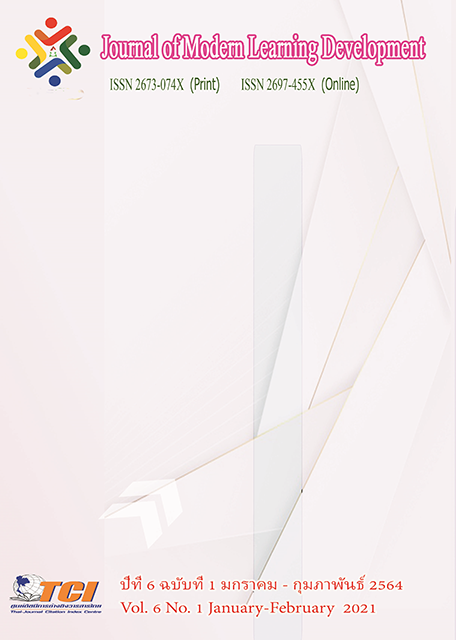Lessons Learned: Success in Waste Management in Japan, Singapore, South Korea, and Taiwan
Main Article Content
Abstract
The objective of this study was to find out the lessons of waste management and to analyze the key factors of waste management success in Japan, Singapore, South Korea and Taiwan. This research was a qualitative research, and the research tools comprised of documents, action plan, electronic documents and related publications. The criteria for selecting documents was that the documents must be reliable and have been available at least 5 years. The researcher used the thematic analysis as a method to analyze the data and determined the issues to explain the lesson learned of waste management and to analyze the key factors of waste management success of the four countries.
The results of the study revealed that all four countries adopted the 3Rs concept for separating waste from the source and divided the trash according to the types of waste. When considering the overall waste management process, it can be divided into 3 main groups: sorting, collection and transport, and law. First, it was found that Japan and South Korea were outstanding in raising awareness of the people for waste management. Second, there were measures to force the people to come out of their own cars to dispose of trash in Taiwan. The removal was also similar to Japan and South Korea in bringing technology to help waste management. Regarding the law or issuing measures, it was found that the four countries had issued similar measures. In other words, the people took part in their own responsibility. It was also found that South Korea and Taiwan have developed applications to assist in the waste collection and transport. The suggestion from this study was to emphasize raising awareness of the correct waste separation and promoting true participatory integration. Moreover, the government have been required to play a role in the mechanism of the market more than before.
Article Details
References
กรมควบคุมมลพิษ. (2561). รายงานสถานการณ์สถานที่กำจัดขยะมูลฝอยชุมชนของประเทศไทย ปี พ.ศ. 2561. กรุงเทพมหานคร: กระทรวงทรัพยากรธรรมชาติและสิ่งแวดล้อม
ไชยยุทธ์ กลิ่นสุคนธ์ และธวัชชัย ศุภดิษฐ์. (2551). ทัศนศึกษาดูงานการจัดการของเสียประเทศสาธารณรัฐเกาหลี. วารสารที่ปรึกษาสิ่งแวดล้อมไทย. 12 (2), 53-69
Broom, D. (2019). South Korea once recycled 2% of its food waste. Now it recycles 95%. World Economic Forum. Online. Retrieved May 20, 2020. from: https://www. weforum. org/agenda/2019/04/south-korea-recycling-food-waste/
History SG. (2019). “Garden City” Vision is Introduces. Online. Retrieved June 1, 2020. from : https://eresources.nlb.gov.sg/history/events/a7fac49f-9c96-4030-8709-ce160 c58d15c
Lin, W. TAIWAN WASTE MANAGEMENT. Online. Retrieved December 7, 2020. from: https://cadsondemak.com/taiwan-waste-management/
Namba, M. (2003). RECYCLING: Moving toward a less wasteful society. Asia Pacific Perspective. 1 (4). 4-5
National Environment Agency. (2018). Waste Management. Online. Retrieved December 1, 2020. from: https://www.nea.gov.sg/our-services/waste-management
Rossi, M. (2018). TAIWAN HAS ONE OF THE HIGHEST RECYCLING RATES IN THE WORLD. HERE’S HOW THAT HAPPENED. Institute on the Environmental at the University of Minnesota. Online. Retrieved January 7, 2021. from: https://ensia.com /features/taiwan-recycling-upcycling/
FOX Business. (2018). FOX Business. Online. Retrieved December 15, 2020. from: https://www.foxbusiness.com/markets/taiwanese-use-new-machines-to-exchange-trash-for-cash


